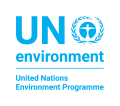Project Database
Buildings are significant contributors to GHG emissions, making it imperative to reduce their energy demand and carbon footprints to meet Nationally Determined Contributions (NDC) targets. In Asia, high energy consumption and rising cooling demands from buildings propel governments to shift to bio-based materials, better design and efficient appliances.
The Asia...


Climate change can only be stopped through the global transformation of the economy and lifestyles. Corresponding goals have already been anchored in the 2030 Agenda for Sustainable Development and the Paris Climate Agreement. However, the ensuing commitments present a challenge for many countries and require comprehensive solutions.
The Inclusive Green...

The programme Sustainable Regional Economic Growth and Investment (SREGIP) tackles the inclusive and environmentally sustainable development of Indonesian value chains by focusing on agro-business and tourism. Currently, value added, inclusiveness and environmental sustainability of small and medium-sized enterprises (SMEs) and smallholder farmers in selected regions and sectors are insufficient (core...

The Government of Indonesia (GoI) recognized that to become one of the top ten largest economies in the world by 2025, in an inclusive and environmentally sustainable way Indonesia will need to reduce GHG emissions and the deforestation that significantly contributes to emissions, while creating financial value for the considerable...

The Government of Indonesia (GoI) recognizes that to become one of the top ten largest economies in the world by 2025, socially inclusive and environmentally sustainable growth needs to take root throughout the Indonesia. In support of this goal, GGGI is providing technical support to the regional Development Planning Agencies...


UNDP established the Green Commodities Programme (GCP) in 2009, with the mission to transform agricultural production and trade around the world through multi-stakeholder collaboration and the establishment of effective national enabling environments in producer countries.
Agricultural commodities are the engine of economic growth in rural areas of emerging markets where...

The project “Enhancing South-South Cooperation – Building the Capacity of Developing Countries to Promote Green Economies” was based on the often-articulated wish of developing countries to exchange and share good practices with other countries of the South. The project had two key objectives. The first was to facilitate knowledge exchange...
